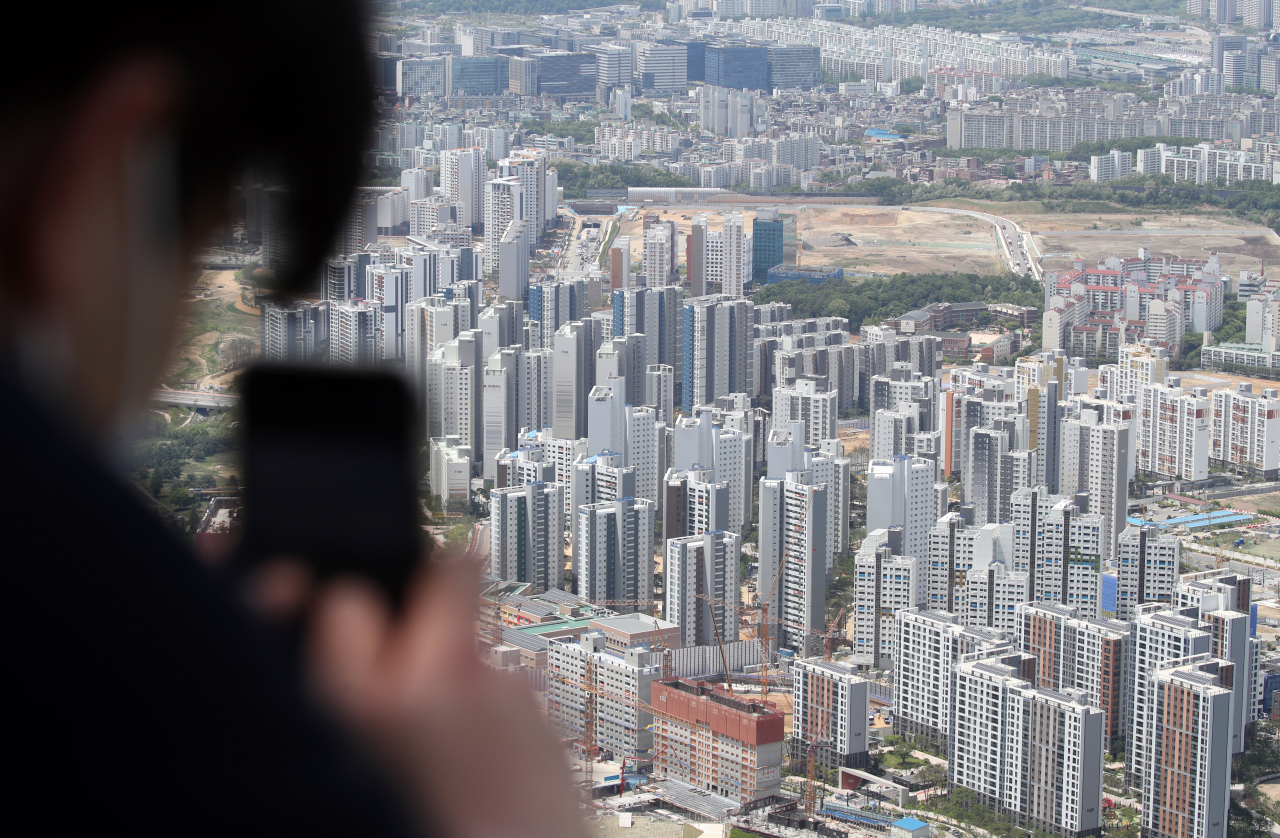 |
Aerial view of an apartment complex in Seoul (Yonhap) |
South Korea’s demand for apartments in the capital and its surrounding areas only got higher, despite the central bank’s recent decision to end 15 months of record-low interest rates, data showed Friday.
According to the Korea Real Estate Board, the index measuring supply and demand for apartments in Seoul and the surrounding area inched up 0.9 point on-week to 111.7 as of Monday, compared with 110.8 last week. When the index is higher than 100, it signals that there are more buyers than sellers, and vice versa for values below 100.
The data comes after the Bank of Korea carried out its first pandemic-era rate hike on Aug. 26 by 25 basis points to 0.75 percent, in hopes of reining in the nation’s snowballing household debt. Commercial banks have either fully or partially suspended their mortgage lending since last month to put a brake on debt growth.
By are of Seoul, demand for apartments in the northeast of the capital -- Nowon-gu, Dobong-gu and Gangbuk-gu -- was the highest for seven consecutive weeks. It stood at 110 and gained 1.8 points on-week.
The northeast has gained popularity among real estate investors in recent years for its relatively cheap apartment complexes that are strong candidates for reconstruction and its modest public transportation.
The Korea Real Estate Board explained that recently elected Seoul Mayor Oh Se-hoon’s announcement last month to review raising the apartment height limit has been feeding investors’ interest in purchasing properties subject to possible reconstruction.
The country’s jeonse prices have been rising as well, with the jeonse supply index for Seoul gaining 1.3 points to 105.3 on-week. A similar yardstick is applied to the jeonse supply index -- when the index is higher than 100, it implies higher demand than supply for jeonse contracts.
Jeonse is a rental system where the tenant hands over a large lump sum to the landlord -- on average, about 65 percent of the value of the property -- and does not pay rent. The deposit is returned to the tenant at the end of the contract.
The average jeonse price in Gangnam-gu, an affluent and well-known area in Seoul, has jumped 58 percent since the beginning of the incumbent Moon Jae-in administration in May 2017, data compiled and released by real estate data platform 10,000-lab showed Wednesday. The average jeonse price for apartments in the area jumped by some 58 percent to 40.2 million won ($36,200) per 3.3 square meters as of August, compared with 25.3 million won in May 2017, according to the same data.
The Moon administration has so far announced and implemented more than 20 sets of real estate measures to curb the nation’s spiking housing prices, but those measures appear to have not had the desired effect.
By Jung Min-kyung (
mkjung@heraldcorp.com)








